Poland – ranked 7th. I Division
pl pts w d l gf ga
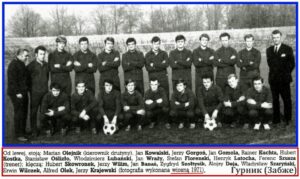 c 1 GÓRNIK ZABRZE 26 39 17 5 4 43 21
c 1 GÓRNIK ZABRZE 26 39 17 5 4 43 21
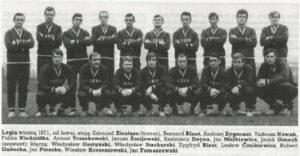 u 2 Legia Warszawa 26 34 14 6 6 39 20
u 2 Legia Warszawa 26 34 14 6 6 39 20
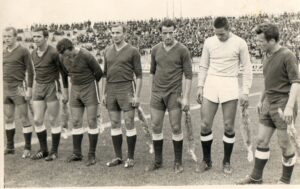
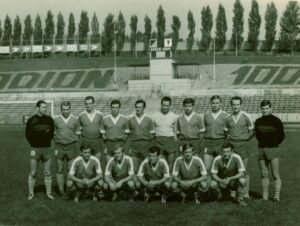 Standing from left:Kobiałko, Stachuła, Nowak, Adamski, Dworniczek, Szeja, Kwiatkowski, Galas, Kasprzyk, Masiel. Crouching: Pawlik, Pietraszewski, Cieszowic, Szłykowicz, Kampa
Standing from left:Kobiałko, Stachuła, Nowak, Adamski, Dworniczek, Szeja, Kwiatkowski, Galas, Kasprzyk, Masiel. Crouching: Pawlik, Pietraszewski, Cieszowic, Szłykowicz, Kampa
u 3 Zagłębie Wałbrzych 26 27 10 7 9 24 24
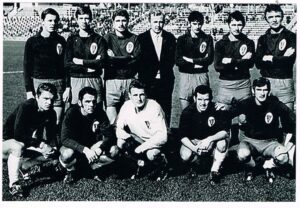
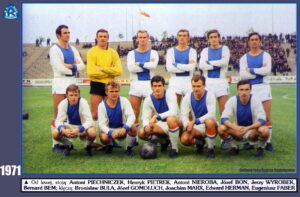 5 Ruch Chorzów 26 25 8 9 9 43 32
5 Ruch Chorzów 26 25 8 9 9 43 32
 6 Szombierki Bytom 26 25 9 7 10 30 32
6 Szombierki Bytom 26 25 9 7 10 30 32
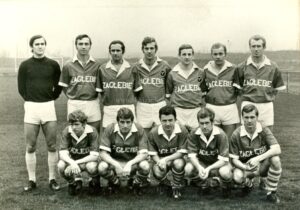 7 Zagłębie Sosnowiec 26 25 8 9 9 32 37
7 Zagłębie Sosnowiec 26 25 8 9 9 32 37
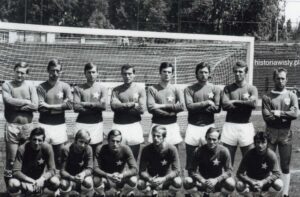 Standing from left: Gonet, Lendzion, Kmiecik, Wójcik, Polak, Płonka, Kotlarczyk, Stroniarz; Front: Musiał, Michaliszyn? Sarnat, Studnicki, Skupinik, Sputo.
Standing from left: Gonet, Lendzion, Kmiecik, Wójcik, Polak, Płonka, Kotlarczyk, Stroniarz; Front: Musiał, Michaliszyn? Sarnat, Studnicki, Skupinik, Sputo.
8 Wisła Kraków 26 25 8 9 9 26 36
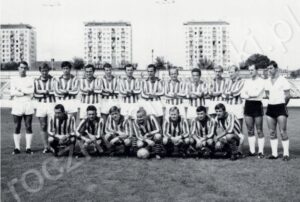 9 Stal Rzeszów 26 24 6 12 8 34 26
9 Stal Rzeszów 26 24 6 12 8 34 26

10 Stal Mielec 26 24 8 8 10 27 33
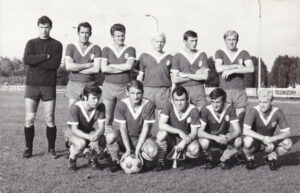 11 Gwardia Warszawa 26 23 8 7 11 24 28
11 Gwardia Warszawa 26 23 8 7 11 24 28
 Polonia on the left vs Ruch Chorzow
Polonia on the left vs Ruch Chorzow
12 Polonia Bytom 26 23 5 13 8 15 22
r 13 ROW Rybnik 26 22 7 8 11 15 22
r 14 GKS Katowice 26 21 4 13 9 20 30
